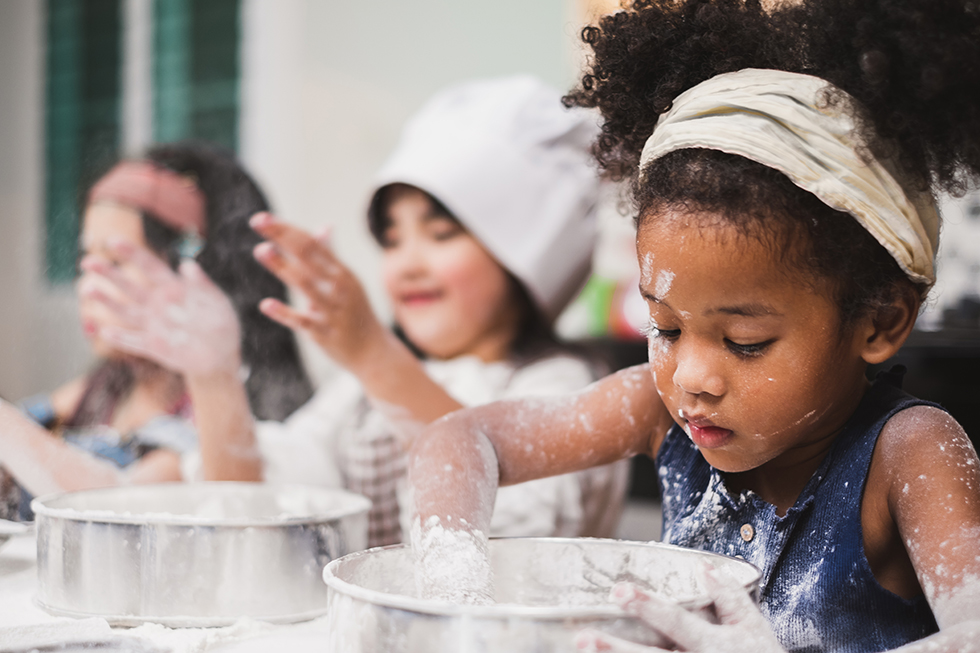July is the perfect time to implement some fresh ideas for summer fun that also have an undercurrent of learning. Below are a few simple ways to get those mental muscles moving again.
Let your kids do the cooking
Learning doesn’t always have to feel like learning. Cooking with your children teaches a valuable life skill and helps reinforce reading and math skills. Have your child choose a special meal to prepare, and then create a grocery list while sticking to a budget. During meal prep, children will practice skills in sequencing, measuring, fractions and conversions. They’ll also learn that you do actually use math in real life. Find a fun list of recipes for kids at bbcgoodfood.com/recipes/collection/kids-cooking.
Encourage your children to keep a summer journal
Journaling not only helps improve fine motor, reading and writing skills, it also helps children become more in tune with themselves and the world around them. Allow your child to choose their own journal. Remind them that there are no set rules and that this is their safe space to write whatever comes to mind…and then watch the words start to flow. If your child is struggling to get started, they can find fun daily prompts at journalbuddies.com.
Create simple science experiments at home
From slime to Alka-Seltzer and vinegar powered rockets, home-based science experiments are a great way to kill some time while reminding children that science is fun! Science Bob (sciencebob.com) is a great website with simple science experiments, detailed instructions and talking points to discuss with your children. For visual learners, YouTube is chock-full of instructional videos. Simply type “science experiments for kids” into the search bar and let the learning begin.
Play a board game
One of the easiest ways to disguise learning as fun is to gather the family for game night. For young readers, simple word games like Bananagrams, Boggle and Silly Sentences help build language skills. Qwirkle, Q-bitz and Goblet hone strategy, memory and visual dexterity. Time-tested games like Monopoly and Yahtzee, as well as new games like Tenzi and Rummikub reinforce math and sequencing skills. For teens, Risk and Catan require strategy and logic. And there is nothing like a classic game of chess to build those brain muscles (and get your teen to spend more than five minutes in a room with you).

